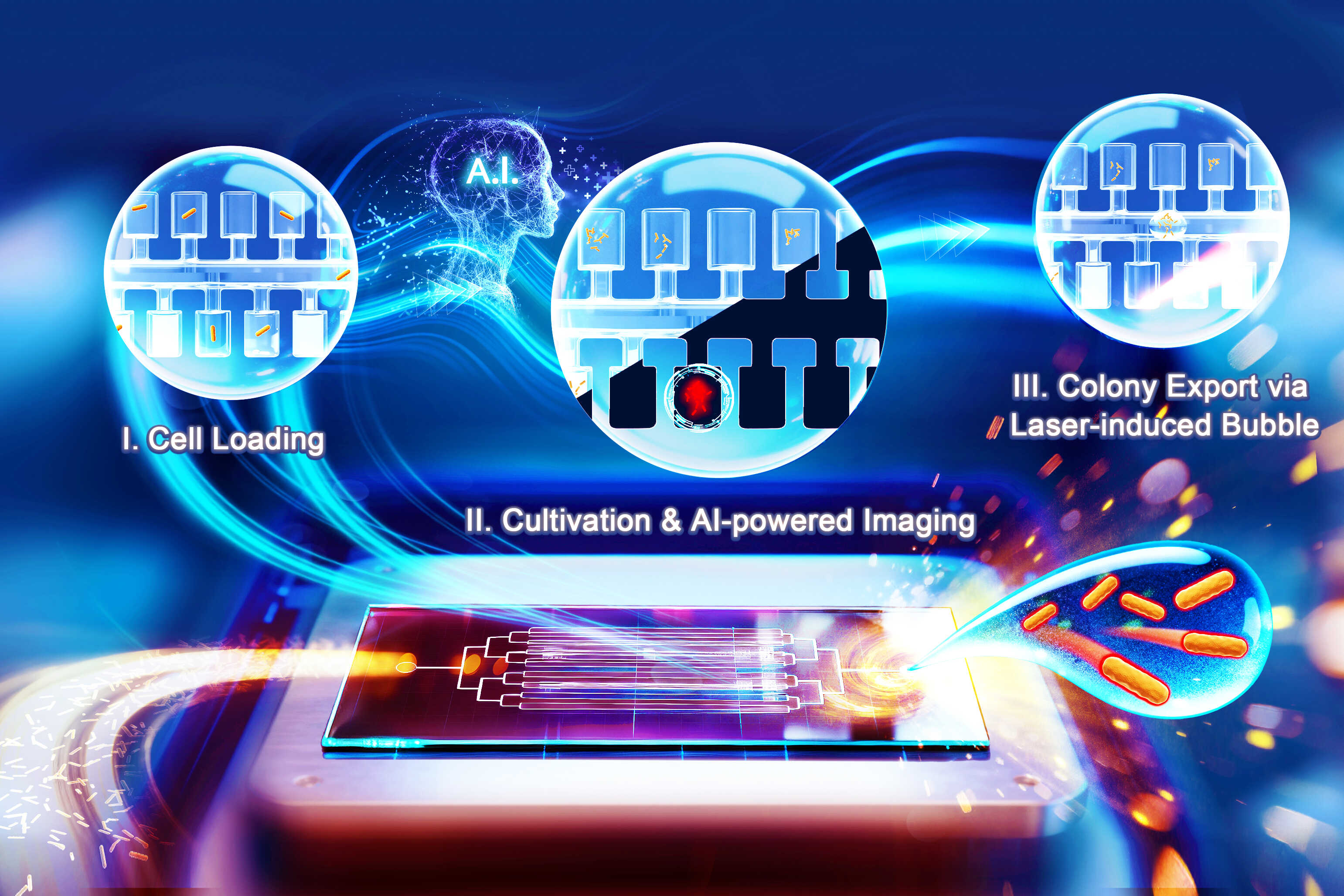A research team from the Qingdao Institute of Bioenergy and Bioprocess Technology (QIBEBT) of the Chinese Academy of Sciences, has developed a fully automated "Digital Colony Picker" (DCP). This device identifies and retrieves high-performance microbial clones by simultaneously monitoring their growth and metabolite production-eliminating the need for culture plates, sampling needles, or manual picking.
The study was published in Nature Communications on Oct. 10.
Designed for the "design-build-test-learn" framework widely adopted in synthetic biology, the DCP streamlines the traditionally slow, labor-intensive "test" phase into a fast, parallel workflow with little hands-on time. It has a microfluidic chip containing 16,000 addressable microchambers that isolate single cells and track their expansion into micro-colonies.
An integrated AI engine conducts time-lapse analysis of both brightfield and biosensor signals to quantify growth kinetics and metabolite production in real time. Once target colonies are identified, a laser-induced bubble technique exports them as droplets directly into standard culture plates. This contact-free transfer minimizes cross-contamination and preserves cell viability.
In a proof-of-concept experiment using the industrial microorganism Zymomonas mobilis, the team used the DCP to screen for clones that tolerate lactate stress while producing higher lactate yields. After one round of screening, they identified a candidate that grew 77% faster under 30 g/L potassium lactate and achieved a nearly 20% higher lactate titer compared to the control group.
A follow-up genomic analysis identified an outer-membrane autotransporter gene, ZMOp39x027. This suggests enhanced transport and stress resilience may be a plausible mechanism and an actionable lead for developing more robust, high-yield organic acid producers.
Beyond speed, the study highlights DCP design features that address common bottlenecks in droplet and plate-based screening. For example, gas-phase separation of single-cell culture droplets prevents cross-contamination; rapid medium exchange supports dynamic or long-term assays; chip-wide indexing enables panoramic analysis at approximately 800 colonies per minute; and push-button, contact-free clone export ensures high collection efficiency and robust post-export growth.
The platform is compatible with diverse microbes and detection methods, integrating seamlessly with downstream workflows such as shake-flask culture or bioreactor testing.
By combining growth tracking, metabolic monitoring, and one-click clone export, the DCP transforms single-cell phenotyping into a routine, scalable process. "We can now identify rare, top-performing producers early and move them directly into optimization," said Prof. YANG Shihui, co-corresponding author of the study from Hubei University.
The platform is not only effective for identifying high-yield or lactate-tolerant Zymomonas mobilis mutants but also broadly applicable to adaptive evolution studies, functional gene discovery, and phenotype screening across diverse microbial species, the researchers noted.
Additionally, the DCP system works with all mutation methods, including genome-wide editing and random mutagenesis libraries. Its AI modules-for detection, segmentation, and feature extraction-can be adapted to new cell types and fluorescent biosensors.

AI-driven multi-phenotype, high-throughput cell screening platform - DCP. (Image by QIBEBT)






